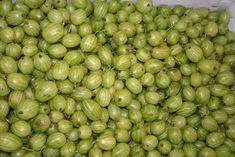
Consumer ignorance of fresh produce remains high, with knowledge of the source, season and nutritious value of fruit and vegetables considerably flawed, according to new research.
Following a survey of 3,000 people by AXA PPP healthcare’s Nutrition and Fitness website, ahead of the introduction of new EU regulations on marketing standards on July 1, it was revealed that consumers lack knowledge of the seasons of UK products and the origins of imports.
Only two per cent of people surveyed knew that asparagus was a native UK vegetable and only half were aware of its season. Nearly three-quarters of people under 18 surveyed could not identify an image of native British gooseberries, while 88 per cent of people did not know how pineapples grow.
A quarter of people believed the potato to be native to the UK and it was voted the nation’s favourite fresh produce item, beating Wimbledon favourite strawberries and Christmas staple Brussels sprouts as the fruit or vegetable the nation would most like to become England’s national emblem.
Under the imminent new EU rules, misshapen fruit and veg will be allowed to be sold across Europe, but nearly two-thirds of people surveyed would prefer to buy “perfect”-looking carrots over crooked - even though only 10 per cent of people thought straight carrots would be more nutritious.
But European industry body Freshfel Europe believes that information to do with shape or provenance is a “marketing tool”, and the industry should be more concerned about the commercial implications of the new regulations.
Philippe Binard, general delegate of Freshfel Europe, told FPJ: “The commission has used populist arguments to justify using the misshapen angle in its new marketing standards, but it could create a number of problems with financial burdens, labelling and risk analysis. Submitting samples to the new marketing standards when they have passed existing health and safety testing makes no sense.
“It could seriously interfere with a system which is working fine and there could be different ways of dealing with them in different countries. The impact assessment they are doing now should have been carried out much more openly before the regulations were decided upon. People are aware they need their 5 A DAY and the message is clear.”
But the National Farmers’ Union (NFU) said consumer education needs to be addressed. Phil Hudson, chief horticultural advisor, told FPJ: “We need to continue to provide information on-pack, in retail outlets and in schools. This has a clear role for the parents of today and tomorrow’s consciousness. The nutrition comes from a product, whatever its size, but the message comes down to education.
“In terms of provenance, the Eat Seasonably campaign [launched in May] is trying to promote UK product, but it’s important to make it clear that there is not enough UK production to create availability at the moment, which makes research and development, the NFU’s Why Horticulture Matters campaign and the food security debate important.”
Despite the relaxed regulations, small strawberries will still be prevented from being sold, even though 98 per cent of people stated in the survey that small size would be the least off-putting factor when it came to selecting strawberries, with freshness (47 per cent) and bruising (33 per cent) prioritised.
Kathryn Race, Potato Council marketing director said: “It’s fantastic news that the potato has been voted as the nation’s favourite vegetable and preferred emblem! However, it is no surprise that potatoes are a firm British favourite given they tick all the right boxes - they’re tasty, nutritious, versatile and great value for money.
“But while we know there is real affinity to potatoes, AXA’s research also backs up our own findings that shows the need for the industry to increase awareness of the seasonality and origin of potatoes and their many benefits.
However, this has not concerned the UK soft-fruit industry. A spokesperson for British Summer Fruits said: “We are happy with the current specification. If we had to sell smaller strawberries, it would have to be agreed with the growers, as it would be detrimental to the overall growing costs.”



